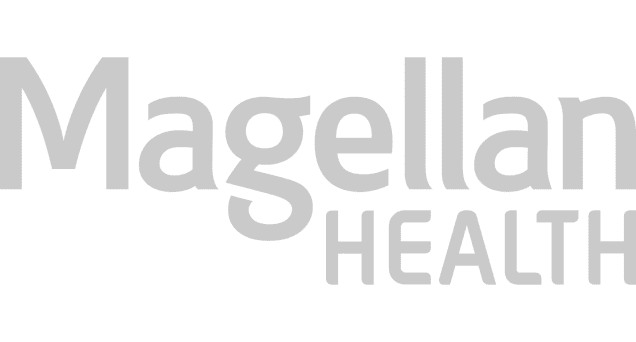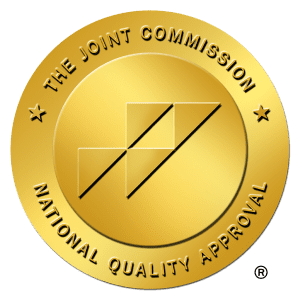Seasonal depression, or SAD, is characterized by a range of symptoms, including persistent sadness, low energy, changes in sleep patterns, irritability, and a general feeling of lethargy during particular seasons. While many factors contribute to its onset, a primary culprit is the reduced exposure to natural sunlight. This lack of sunlight disrupts the body’s internal clock and can affect the production of mood-regulating neurotransmitters like serotonin.
Seasonal Depression's Impact on Addicts
Seasonal depression, also known as Seasonal Affective Disorder (SAD), is a form of depression that plagues individuals during specific times of the year, most commonly during the fall and winter months when daylight hours are shorter. For those in addiction recovery, these seasonal mood changes can present unique challenges. In this comprehensive article, we will delve deeply into the profound effect of seasonal depression on individuals struggling with addiction. We will explore the intricacies of Seasonal Affective Disorder, its potential impact on addiction recovery, and offer a range of coping strategies to help individuals not just survive but thrive during these challenging times.

Seasonal Depression's Impact on Addicts
Seasonal depression, also known as Seasonal Affective Disorder (SAD), is a form of depression that plagues individuals during specific times of the year, most commonly during the fall and winter months when daylight hours are shorter. For those in addiction recovery, these seasonal mood changes can present unique challenges. In this comprehensive article, we will delve deeply into the profound effect of seasonal depression on individuals struggling with addiction. We will explore the intricacies of Seasonal Affective Disorder, its potential impact on addiction recovery, and offer a range of coping strategies to help individuals not just survive but thrive during these challenging times.

Understanding Seasonal Depression:

The Impact on Addicts:
For individuals striving to overcome addiction, seasonal depression can be particularly daunting due to its potential to trigger relapse or worsen existing mental health conditions. Here’s an in-depth look at how seasonal depression can impact individuals in addiction recovery:
- Increased Vulnerability: Those in addiction recovery may be more susceptible to seasonal depression due to the ongoing stress of maintaining sobriety and adjusting to a new way of life. The constant vigilance required can leave individuals emotionally drained and more vulnerable to mood disorders.
- Isolation and Withdrawal: Seasonal depression often leads to feelings of isolation and withdrawal from social activities. For individuals in recovery, isolation can be especially perilous as it weakens support networks and increases the risk of relapse.
- Dual Diagnosis: Many individuals with substance use disorders also struggle with co-occurring mental health disorders, such as depression or anxiety. Seasonal depression can exacerbate these conditions, leading to a complex dual diagnosis that requires specialized treatment.
- Coping Mechanisms: Coping strategies that were previously used to deal with stress or difficult emotions may be compromised during bouts of seasonal depression. Some individuals may be tempted to turn to substances as a way to self-medicate, making it critical to seek healthier alternatives.

The Impact on Addicts:
For individuals striving to overcome addiction, seasonal depression can be particularly daunting due to its potential to trigger relapse or worsen existing mental health conditions. Here’s an in-depth look at how seasonal depression can impact individuals in addiction recovery:
- Increased Vulnerability: Those in addiction recovery may be more susceptible to seasonal depression due to the ongoing stress of maintaining sobriety and adjusting to a new way of life. The constant vigilance required can leave individuals emotionally drained and more vulnerable to mood disorders.
- Isolation and Withdrawal: Seasonal depression often leads to feelings of isolation and withdrawal from social activities. For individuals in recovery, isolation can be especially perilous as it weakens support networks and increases the risk of relapse.
- Dual Diagnosis: Many individuals with substance use disorders also struggle with co-occurring mental health disorders, such as depression or anxiety. Seasonal depression can exacerbate these conditions, leading to a complex dual diagnosis that requires specialized treatment.
- Coping Mechanisms: Coping strategies that were previously used to deal with stress or difficult emotions may be compromised during bouts of seasonal depression. Some individuals may be tempted to turn to substances as a way to self-medicate, making it critical to seek healthier alternatives.
Your Journey to Wholeness Begins with Only a Willingness
We’re here to encourage and support you.
Start On Your Path today!
Need Clarity? Text or Call our Admissions Team Anytime.
Your Journey to Wholeness Begins
with Only a Willingness
We’re here to encourage and support you: Start On Your Path today! Need Clarity?
Text or Call our Admissions Team Anytime.
Coping Strategies: A Comprehensive Approach

Call Grata House Today!
If you or someone you know is grappling with addiction and seasonal depression, remember that there is hope, and you are not alone. Help and support are readily available to guide you through this challenging journey towards recovery and mental wellness. Contact Grata House at 805-303-5481 for personalized assistance and access to a safe, compassionate environment where you can address both addiction and seasonal depression.

Call Grata House Today!
If you or someone you know is grappling with addiction and seasonal depression, remember that there is hope, and you are not alone. Help and support are readily available to guide you through this challenging journey towards recovery and mental wellness. Contact Grata House at 805-303-5481 for personalized assistance and access to a safe, compassionate environment where you can address both addiction and seasonal depression.











Your Journey to Wholeness Begins
with Only a Willingness
We’re here to encourage and support you.
Start On Your Path Today!
Need Clarity? Text or Call our Admissions Team Anytime.
Your Journey to Wholeness
Begins with Only a Willingness
We’re here to encourage and support you. Need Clarity? Text or Call our Admissions Team Anytime.
Start On Your Path today!
FAQS
- Can seasonal depression trigger a relapse in addiction recovery?
- Is medication an option for treating seasonal depression in addiction recovery?
- How can I differentiate between seasonal depression and a temporary mood slump?
- Are there any natural remedies for managing seasonal depression alongside addiction recovery?
- Is it possible to fully recover from addiction and seasonal depression?
Yes, seasonal depression can increase the risk of relapse, as it may lead to heightened vulnerability and a desire to self-medicate. Seeking professional help and maintaining a strong support system are crucial safeguards.
Medication can be considered as part of the treatment plan. However, it should be prescribed and closely monitored by a healthcare professional with expertise in addiction recovery to ensure its safe and effective use.
Seasonal depression is characterized by consistent and persistent symptoms that occur seasonally, while temporary mood slumps are typically more short-lived and often tied to specific stressors or events.
Natural remedies such as regular exercise, a well-balanced diet, adequate sleep, and mindfulness practices can be highly effective in managing seasonal depression when integrated into a comprehensive treatment plan.
Yes, with the right treatment, support, and coping strategies, individuals can manage both addiction and seasonal depression, leading to a healthier and more fulfilling life. Recovery is an ongoing process, and seeking professional guidance is key to achieving long-term success.
FAQS
- Can seasonal depression trigger a relapse in addiction recovery?
- Is medication an option for treating seasonal depression in addiction recovery?
- How can I differentiate between seasonal depression and a temporary mood slump?
- Are there any natural remedies for managing seasonal depression alongside addiction recovery?
- Is it possible to fully recover from addiction and seasonal depression?
Yes, seasonal depression can increase the risk of relapse, as it may lead to heightened vulnerability and a desire to self-medicate. Seeking professional help and maintaining a strong support system are crucial safeguards.
Medication can be considered as part of the treatment plan. However, it should be prescribed and closely monitored by a healthcare professional with expertise in addiction recovery to ensure its safe and effective use.
Seasonal depression is characterized by consistent and persistent symptoms that occur seasonally, while temporary mood slumps are typically more short-lived and often tied to specific stressors or events.
Natural remedies such as regular exercise, a well-balanced diet, adequate sleep, and mindfulness practices can be highly effective in managing seasonal depression when integrated into a comprehensive treatment plan.
Yes, with the right treatment, support, and coping strategies, individuals can manage both addiction and seasonal depression, leading to a healthier and more fulfilling life. Recovery is an ongoing process, and seeking professional guidance is key to achieving long-term success.
